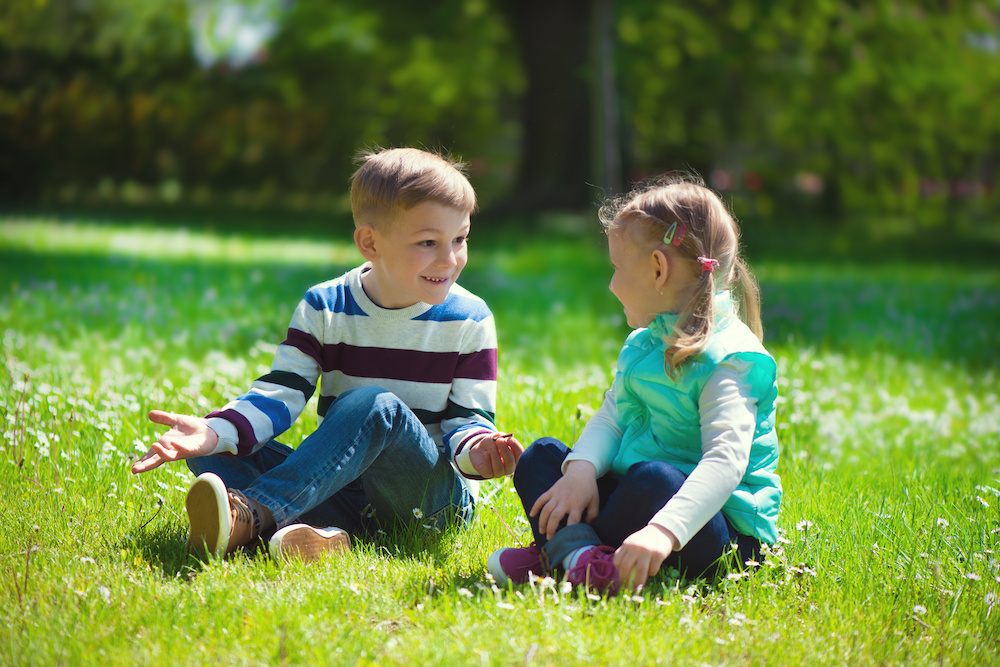After your divorce, you are no longer married to each other and you will each live your own life. However, you are still parents to your children and in their eyes you are still “mom and dad”, and you still both have the goal of raising healthy children, right?
How do you want your children to view you post-divorce?
- As two adults who can’t stand the sight of each other (imagine how that would make your children feel and what impact it will have on their development?), or
- As “mom and dad”, two people who created them together, and who still love them together and want the best for them?
Obviously the latter. But creating that for your children takes a lot of hard work, and requires you both to rise above the negative emotions with each other to do what is best in raising healthy children. Many couples cannot do this. Those who are able to do this are envied by so many of their friends and relatives for being able to take the high road and do what is best for their children.
The following is a list of tips in working with your spouse post-separation and post-divorce, thereby raising healthy children—the same way you would if you had never divorced.
You may not be able to do all of these, but the more you can do the better adjusted your children will be (and the better you both will feel about yourselves and your children).
1. Regular Updates To the Parenting Schedule:
Plan to meet at least 1 – 2 times during the year to update the parenting schedule to stay current with the children’s schedules and developmental needs (perhaps prior to summer vacation and prior to the start of the new school year).
2. Prioritize Special Events:
Understand that sometimes modifications will need to be made to the standard parenting schedule to allow the children to attend special family celebrations and occasions that conflict with standard parenting time (e.g., extended family engagement parties, weddings, funerals, graduation parties, etc.). Allow these modifications so your children can share special events and do your best to re-schedule missed parenting time.
3. Allow Your Children To Have Pride In Both Parents:
Always speak highly of your ex with the children, helping your children to have pride in both parents (and encourage your family and friends to always do the same when with the children).
4. Be Reliable For Your Children:
Always be on time for your parenting time so your children know you are reliable for them and try not to cancel parenting time; if you have to, provide enough notice so the children are informed ahead of time.
5. Keep Each Other Informed:
Find a healthy way to communicate regularly with your ex regarding schedule changes, illnesses, new commitments for the children, challenges the children are having, things the children enjoy or are passionate about, even alignment around the children’s birthday celebrations. Agree up front how you will communicate (email, text, phone, in-person).
6. Consider Joint “Family” Outings Periodically:
If possible, agree to plan a small number of joint “family” outings together (perhaps certain traditions, birthdays, etc) as a nuclear family, so the children are aware that their mom and dad still love them together and that they are still part of a family. Consider whether significant others should or should not join these outings. Note: This may be very challenging for many couples, but those that can do this are providing a wonderful gift to their children.
7. Share Children’s Special Events:
If possible, agree to be civil and sit together during the children’s sporting events, extracurricular activities, school events, etc., to show the children that they still have two parents who love them together. If you prefer not to sit together, agree to be civil and stop by to congratulate the children together.
8. Never Allow Your Children To Hear Your Anger About Your Ex:
Never ever speak poorly of your ex when the children can overhear the conversation. Doing so only damages your children, because they view each parent as part of themselves.
9. Align On Significant Others:
Agree how to handle significant others (i.e., how they are introduced to the children, whether you will allow overnights when the children are around, restrictions on how they discipline the children, how to inform the children of an engagement, etc.).
10. Try To Keep Your Children’s Schedules Consistent In Each Other’s Homes:
Try your best to understand the children’s schedules in each other’s home, and try to maintain consistent schedules with regard to homework, friends, computer time, bedtimes, etc., when with each parent.
When you “lawyer-up” and litigate, it is very challenging to achieve any of these behaviors. Mediation is a process that has numerous benefits, the most important being that it preserves your relationship so you can strive to achieve many of these ideas, minimize the negative impact of the divorce on them, and effectively raise healthy children.
It’s not easy, but your actions now, will 100% affect your children’s emotional health now and for the rest of their lives. I say that in a positive way, not as a threat. Isn’t it wonderful to realize that you do have so much more control than you think when it comes to the health and wellbeing of your children! I’m here if you’d like to set up a time for a complimentary consultation.

Michael Cohen, who also earned his CPA, is an accomplished business leader with extensive experience in people management and cross-functional projects that required him to often mediate and find the best path forward for people and teams, throughout his career. These skills are critical in a mediation setting. Coupled with Michael’s own experience in a litigated divorce, he is driven to help divorcing couples navigate their divorce in the healthiest way possible. Michael is the founder of Michael’s Mediation, which serves divorcing couples across the U.S. He is a graduate of the University of Illinois with a divorce mediation certification from Northwestern University. Michael is a loving father of three and lives in the Northern Suburbs of Chicago. Learn more here.























Thank you for an accurate review / my divorce hasn’t been so smooth and my kids have suffered — I wish we’d been required to use an app like OFW from the start, as it took hauling the ex back to court to even get that implemented.
Sigh. Here’s to smoother sailing ahead!